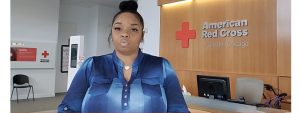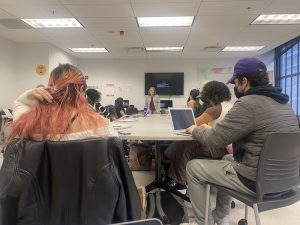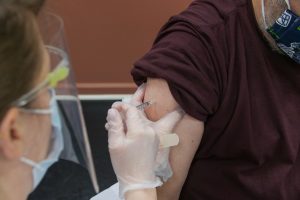 Chicagoans may soon be able to locate STD testing centers and free condoms right from their smartphones.
Chicagoans may soon be able to locate STD testing centers and free condoms right from their smartphones.
The Chicago Department of Public Health in partnership with Microsoft, is in the process of developing an app for Apple, Android and Windows users, members of the department’s board learned Wednesday, August 20 at their monthly meeting.
[pullquote]The app will cost anywhere between $50,000 and $100,000 to create and operate, said Raed Mansour, executive assistant to the commissioner at the Chicago Department of Public Health. To make the application compatible with most smartphones, the costs will be higher, Mansour said. But because of volunteers – coders adept at developing apps – who are donating their time and expertise, the public health board expects there to be no costs to taxpayers. The department also anticipates funding from grants as well.[/pullquote]
The mobile app will be released on each major smartphone device one at a time. The first release will be in 6 months, with the final app releasing within a year, Mansour said.
Adriana Hibarra, a senior at Roger C. Sullivan High School, attended the health department’s board meeting as a representative of the Mikva Challenge; a nonpartisan civic group in Chicago designed to get young people involved in the political process. Hibarra said an app that locates testing centers for sexually transmitted diseases and provides free condoms would be great for teens.
“I think it will be a really huge hit because teenagers are always on their phones,” Hibarra said. “It’ll be very convenient and I hope they go through with the app.”
Joy Messinger, deputy director of the Illinois Caucus for Adolescent Health, said it’s crucial for young people to be safe, affirmed and healthy, which is why an app like this can be helpful.
“We need more resources like this to share with both youth and adults,” Messinger said. “An app or other technology that helps youth locate testing centers and free condoms is crucial to positive sexual health.”
And because her advocacy group partners with youth, she said she can speak firsthand about the possible impact on Chicago’s teens and young adults.
“We can attest that the youth we work with tell us from personal experience that they feel more information and available condoms allows for them to be decision makers around their own health and bodies,” Messinger said.
But not everyone agrees that free condoms and STD testing locations should be more easily available to youth.
“My first reaction is what a pitiful commentary on the state of our culture today,” said David Smith, deputy director for the Illinois Family Institute, an advocacy group for abstinence.
The idea is counterproductive, Smith said, because they’re helping people find free condoms, which is encouraging the very activities that cause STDs.
“Promoting the very act that causes STDs is not the way to prevent it,” Smith said. “If they’re really interested in helping they should encourage abstinence until marriage and monogamy there after.”
For a list of clinics in the Chicago area that provide free condoms and STD and HIV testing, you can visit this site.






Be First to Comment